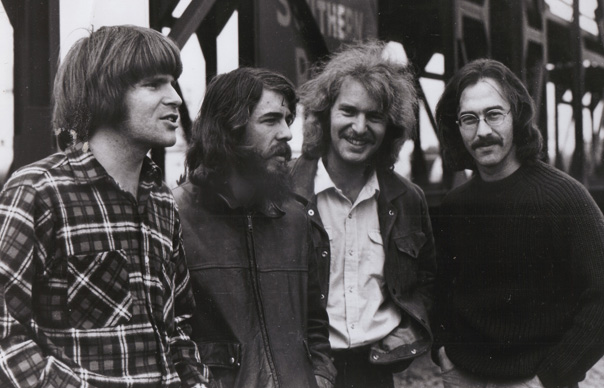 More than fifty years since the breakup of Creedence Clearwater Revival (CCR), hopes for a reunion of the iconic rock band have been officially extinguished. The lingering animosities between surviving members—John Fogerty, Stu Cook, and Doug Clifford—have left fans heartbroken, with the dream of the band sharing the stage one last time now seeming impossible. Despite the enduring popularity of CCR’s music, unresolved legal and personal conflicts have overshadowed the band’s legacy, leaving a trail of regret and missed opportunities.
More than fifty years since the breakup of Creedence Clearwater Revival (CCR), hopes for a reunion of the iconic rock band have been officially extinguished. The lingering animosities between surviving members—John Fogerty, Stu Cook, and Doug Clifford—have left fans heartbroken, with the dream of the band sharing the stage one last time now seeming impossible. Despite the enduring popularity of CCR’s music, unresolved legal and personal conflicts have overshadowed the band’s legacy, leaving a trail of regret and missed opportunities.
CCR rose to fame in the late 1960s, producing a string of timeless hits such as *”Bad Moon Rising,”* *”Fortunate Son,”* and *”Have You Ever Seen the Rain?”* that captured the restless spirit of an America at war with itself. With John Fogerty leading as the band’s primary songwriter, vocalist, and guitarist, CCR achieved meteoric success. However, the pressures of fame and creative control led to bitter disputes that ultimately fractured the band by 1972, just a few years after their rise to stardom.
For decades, the band members have been locked in a toxic cycle of lawsuits, public feuds, and grudges. Much of the conflict has revolved around Fogerty’s strained relationship with Cook and Clifford, who remained active in the music scene as *Creedence Clearwater Revisited*—a move that Fogerty condemned, seeing it as an attempt to capitalize on the band’s legacy without him. The bitter disputes over ownership of the CCR name and royalties became so intense that multiple court battles ensued over the years, further souring any hopes of reconciliation.
In a recent interview, John Fogerty spoke candidly about the emotional toll of the unresolved disputes. “I always believed music was supposed to bring people together, but sometimes it does the opposite. It’s sad. I think we could’ve done something really special if we’d set our differences aside.” His comments echoed the sentiments of many fans, who have long held out hope that time would heal the wounds between the former bandmates.
Cook and Clifford, however, have maintained a different perspective. “We tried to move on and carry the music forward, but the door was slammed shut on us repeatedly,” Cook remarked in an interview earlier this year. “At this point, the past is too heavy to overcome.” Both he and Clifford have expressed disappointment over the breakdown in communication, suggesting that attempts at peace were thwarted by old grudges.
Despite their differences, the three musicians remain bound by the music they created together. Songs like *”Who’ll Stop the Rain?”* and *”Lodi”* continue to resonate with fans, a testament to the band’s unparalleled ability to channel raw emotion and storytelling into their work. Yet, as the years pass, the possibility of a final Creedence reunion has faded, leaving fans with the bittersweet knowledge that the music they love came at the cost of lifelong friendships.
While tribute bands and solo performances by Fogerty still keep the spirit of CCR alive, the absence of the full band serves as a painful reminder of what might have been. In the end, Creedence Clearwater Revival’s story is one of unrealized potential—a legacy of brilliant music marred by personal conflict and regret. The rain of tension, it seems, will never stop falling.
